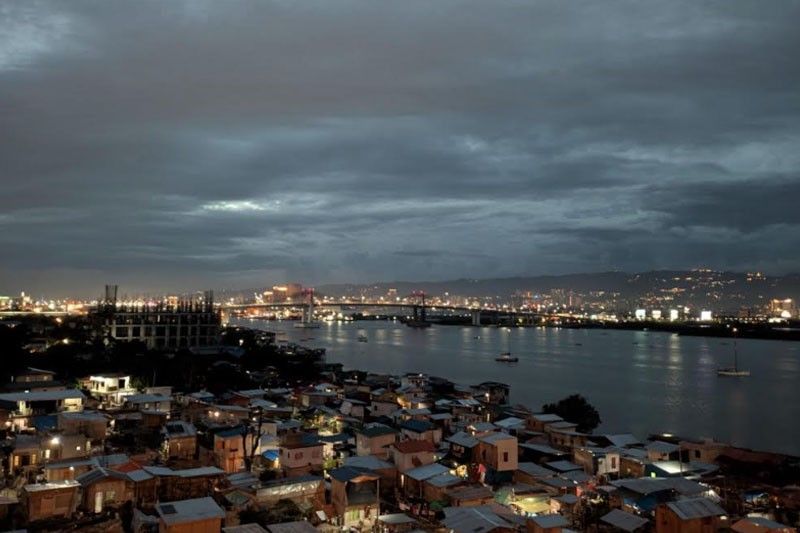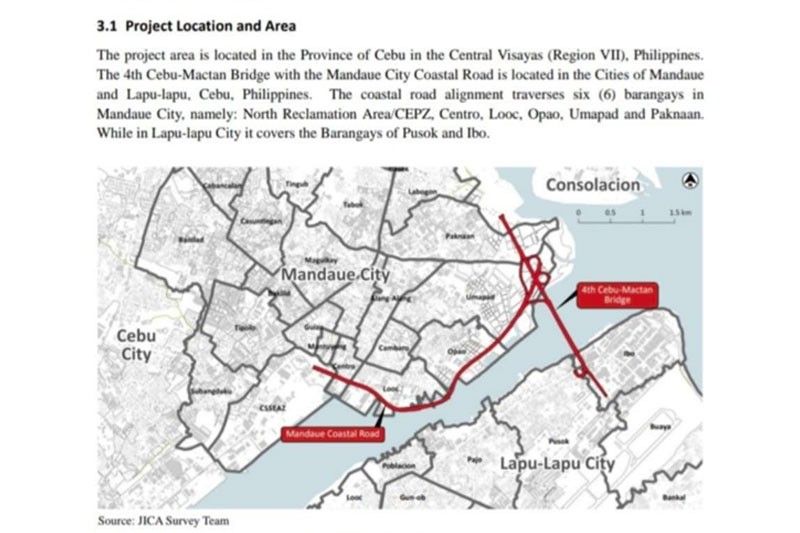Bridging Progress: The promise and challenges of the 4th Cebu-Mactan Bridge

(First Part)
CEBU, Philippines — As Metro Cebu braces for rapid population growth and heavier traffic in the coming years, the 4th Cebu-Mactan Bridge emerges as a vital infrastructure project poised to transform connectivity, ease congestion, and drive economic growth.
Designed to link Mandaue City and Lapu-Lapu City more efficiently, the bridge and its complementary coastal road project aim to deliver faster routes and better traffic flow.
However, while its benefits are widely anticipated, the project also casts a shadow over local communities and fragile ecosystems, raising questions about its long-term impact on livelihoods and the environment.
The project, proposed by the Japan International Cooperation Agency (JICA) over a decade ago, underwent a feasibility study in 2018.
By 2020, JICA signed an agreement with the Philippine government for Japanese Official Development Assistance loans amounting to ¥119.225 billion to fund the fourth bridge and its complementary coastal road construction.

The coastal road alignment will traverse six barangays in Mandaue City—Centro, Looc, Opao, Umapad, Paknaan—and two barangays in Lapu-Lapu City—Pusok and Ibo. It will also include interchanges and intersections designed to optimize traffic flow.
According to the Department of Public Works and Highways (DPWH) Atlas 2023, the first two bridges connecting Lapu-Lapu and Mandaue—the Serging Osmeña Bridge and the Marcelo Fernan Bridge—were evaluated to be in poor condition. With these findings, the construction of a fourth bridge is deemed essential.
Although DPWH’s timeline indicated that civil works for Package 1 should have commenced in 2023, the project remains in a “wait-and-see” phase.
When asked for updates, Mandaue City Planner Architect Marlo Ocleasa deferred to DPWH but emphasized the importance of the project for Mandauehanons and the greater Cebu community.
He also assured that concerns regarding homes and livelihoods affected by the construction would be addressed.
Engr. Nonato “Nonie” Paylado, DPWH-7’s long-time Planning and Design Division Chief, confirmed that the project is proceeding.
"It’s a go,” he said, although could not give specific details on the project’s development as it is DPWH Central Office that is leading the project. But he noted that procurement for civil works has been concluded.
“Naa nay nidaog silbi nga consultants for the construction activities. I think they are now refining the documents para magsugod na. Hopefully, masugdan na na within this year kay nagdaug naman,” Paylado shared, adding that Package 1 includes the construction of the bridge itself.
Business sector optimism
The business community has welcomed the project, citing its potential to reduce traffic congestion and boost economic opportunities.
"The Cebu-Mactan 4th Bridge will definitely bring numerous benefits to traffic management in the area, relieving the congestion that is currently plaguing the entire Cebu island,” said Mandaue Chamber of Commerce and Industry President Marc Anthony Ynoc.
Ynoc added that improved connectivity will stimulate trade and tourism, creating more jobs and attracting foreign direct investments.
"Cebu has always been driven by tourism, and the arrival of the fourth bridge would spark high interest from both domestic and international tourists,” he noted.
Concerns for local livelihood
Despite its benefits, the project has raised concerns among residents, particularly those in industries such as broom-making and fishing.
In Paknaan, Mandaue, where the soft native brooms known as silhig are produced, the potential impact on the cooperative is a pressing issue.
Emilia Mangubat, head of the Paknaanon Multi-Purpose Cooperative (Pamulco), which has over 600 members, expressed her hopes for proper relocation should their production area be affected.
“Wala pay notice nga maapektahan mi. But in case maapektuhan mi, e-relocate gyud mi dapat kay maapektuhan man among panginabuhian,” Mangubat said.
Aside from the cooperative members, other broom-makers in the community also depend on broom-making for daily sustenance. Many have been crafting brooms since childhood, continuing the tradition into adulthood and even marriage.
The industry became so prominent that it gave rise to Paknaan’s “Silhig Festival,” celebrating broom-making as a way of life.
However, Mangubat noted that some have already stopped due to the dwindling supply of raw materials. Others have passed away, though a few new makers—mainly former garbage collectors relocated to Paknaan—have joined the industry.
“Sauna, nay daghang buli sa Paknaan, karon wala naman gud...sa bukid na nah gikan, ehatud ra na diri,” Mangubat shared, noting that there is no longer a buri plantation in the area as the land has been repurposed for other industries.
Other challenges include difficulties in disposing of and selling their products. Moreover, the process of soaking the buri requires salt or seawater, which is essential for broom durability.
Mangubat shared that when they were relocated to another area for a previous project, they tried using freshwater for soaking but failed.
“Gisuwayan namong tab-ang, magabok man siya…dagat gyud siya dapat,” she said. Mangubat hopes that if they are directly affected by the fourth bridge project, they will be given a suitable location to continue this backyard industry.
Fisherfolk from both Mandaue and Lapu-Lapu City have also raised concerns about their livelihoods.
In Mandaue, locals reported that only a few fishermen continue to operate in the Cansaga Bay area due to ongoing development projects. Additionally, fish ponds in Barangay Umapad might be impacted.
Barangay Captain Reb Cortes, however, stated that no discussions have taken place regarding these potential effects under his term.
The People’s Recovery, Empowerment, and Development Assistance (PREDA) Foundation attributes the decline in fisheries along Cansaga Bay to reclamation activities.
In Lapu-Lapu City, fishing has also slowed due to alleged illegal activities and environmental degradation.
Members of the Sta. Maria Fisherfolks Association expressed their concerns about losing their livelihoods and adjusting to a new environment should they be relocated.
“Mao lagi storya pag una nga maapektuhan ni diri...hatag kuno silag ayuda kay mga mananagat bya mi diri, unya maapektuhan lagi kunong dagat. Pero wa naman mi kausab meeting,” said Jose Camingawan, a representative of the association with 30 members.
Aside from livelihood concerns, some residents are worried about their homes.
During earlier consultations, affected households were promised relocation sites. These relocations apply to those displaced by the bridge project itself and the complementary coastal road project. Financial assistance, or ayuda, has also been pledged to help those whose livelihoods will be affected.
Camingawan also worries about the education of their children, as relocation would require them to adapt to new schools and routines.
Beyond the social and economic challenges, environmental concerns are surfacing regarding the project’s impact on coastal ecosystems and fisheries. These issues will be explored in detail in the second part of this special report. — (FREEMAN)
Note: This story was produced with the support of Internews’ Earth Journalism Network as part of the Media Action on Sustainable Infrastructure in the Philippines.
- Latest



















